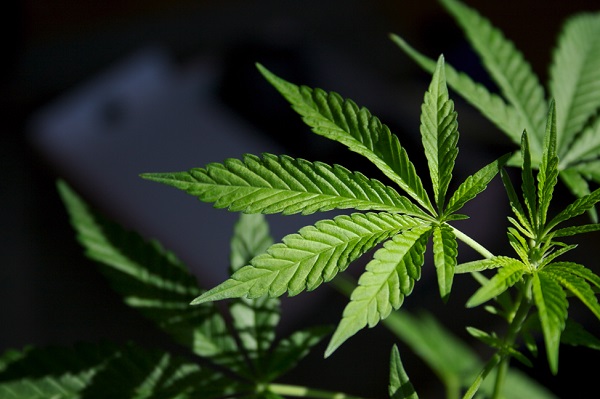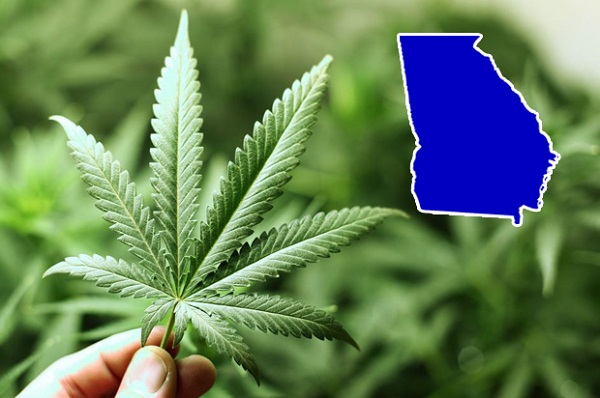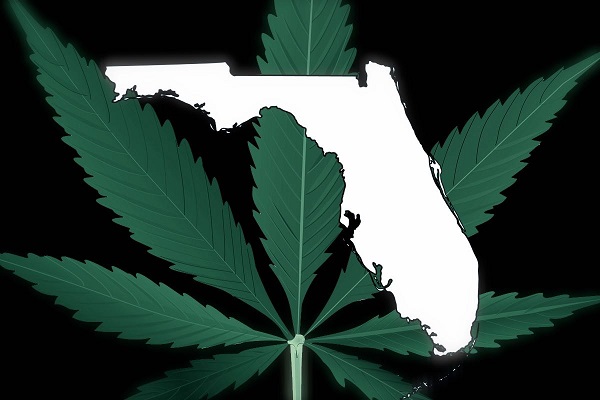Marijuana has gained increasing acceptance and usage for both recreational and medicinal purposes. One of the main active compounds in marijuana is tetrahydrocannabinol (THC), which has been shown to have various therapeutic benefits such as pain relief, anxiety reduction, and appetite stimulation. However, there has been concern about the potential negative effects of THC on the body, including the possibility of causing kidney stones. Kidney stones are painful and often debilitating, and can lead to serious health problems if left untreated. In this article, we will explore the relationship between THC and kidney stones, examining the scientific evidence to determine whether there is a causal link between the two. We will also discuss ways to minimize the risk of developing kidney stones while using THC, and provide advice for those who have already experienced this condition.
How are kidney stones formed?
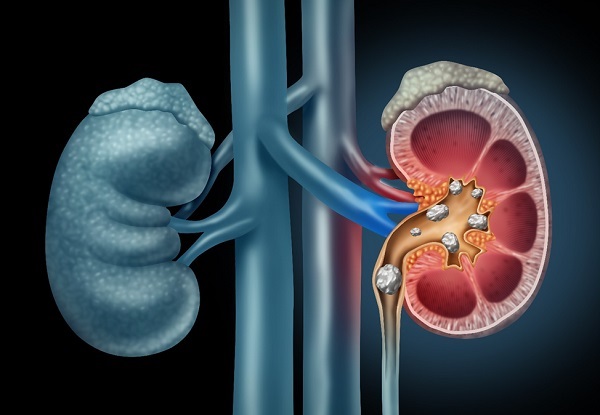
Kidney stones, also known as renal calculi, are hard deposits made of minerals and salts that form inside the kidneys. They can vary in size, ranging from tiny stones that pass easily through the urinary tract to larger stones that can cause intense pain and require medical intervention to remove.
Kidney stones form when certain substances in the urine, such as calcium, oxalate, and uric acid, become concentrated and crystallize. These crystals can then stick together and form a solid mass, which grows in size over time. The exact cause of kidney stone formation is not always clear, but several factors can increase the risk of developing them, including:
- Dehydration: Not drinking enough water can cause the urine to become concentrated, making it easier for minerals and salts to crystallize and form stones.
- Diet: Eating a diet high in salt, sugar, and animal protein, and low in fiber, can increase the risk of developing kidney stones.
- Genetics: A family history of kidney stones can increase the likelihood of developing them.
- Medical conditions: Certain medical conditions, such as gout, hyperparathyroidism, and inflammatory bowel disease, can increase the risk of kidney stone formation.
Symptoms of kidney stones can vary depending on the size and location of the stone, but may include:
- Sharp pain in the back, side, or lower abdomen;
- Painful or frequent urination;
- Blood in the urine;
- Nausea and vomiting;
- Fever and chills (if an infection is present).
Treatment for kidney stones depends on the size and location of the stone, as well as the severity of symptoms. Small stones may be able to pass on their own with the help of pain medication and plenty of fluids, while larger stones may require medical.
The link between weed and kidney stones
There is some evidence to suggest that the use of marijuana, specifically the psychoactive compound THC (tetrahydrocannabinol), may be linked to an increased risk of kidney stones. However, the research in this area is still limited, and more studies are needed to confirm the relationship.
One potential way that THC could contribute to kidney stone formation is through dehydration. THC can cause dry mouth, which may lead to decreased fluid intake and more concentrated urine. This could increase the risk of mineral and salt crystallization and the formation of kidney stones.
Another possible mechanism is the effect of THC on calcium levels in the body. THC has been shown to increase the amount of calcium excreted in the urine, which could potentially contribute to the formation of calcium-based kidney stones.
In a study published in the Journal of the American Osteopathic Association in 2018, researchers analyzed data from the National Health and Nutrition Examination Survey and found that marijuana users had a higher prevalence of self-reported kidney stones compared to non-users. However, the study did not establish a causal relationship between marijuana use and kidney stones, and further research is needed to confirm the findings.
Another study, published in the American Journal of Epidemiology in 2019, analyzed data from over 190,000 participants and found that current marijuana users had a slightly higher risk of developing kidney stones compared to non-users. However, the study also found that past marijuana use was not associated with an increased risk of kidney stones, suggesting that the link may be weaker than previously thought.
It’s important to note that many factors can contribute to the development of kidney stones, and THC use alone may not necessarily be the sole cause. Other lifestyle factors, such as diet and hydration, as well as underlying medical conditions, can also play a role.
Does weed help with kidney stones?
There is currently no evidence to suggest that marijuana, or any of its compounds, including THC, can help treat or prevent kidney stones.
While some people may use marijuana to manage pain associated with kidney stones, there is no scientific evidence to support its use for this purpose. In fact, using marijuana to manage pain may actually be counterproductive, as it can cause dehydration, which can increase the risk of kidney stone formation.
It’s important to note that kidney stones can be a serious medical condition that requires prompt medical attention.
What consumption method works best?
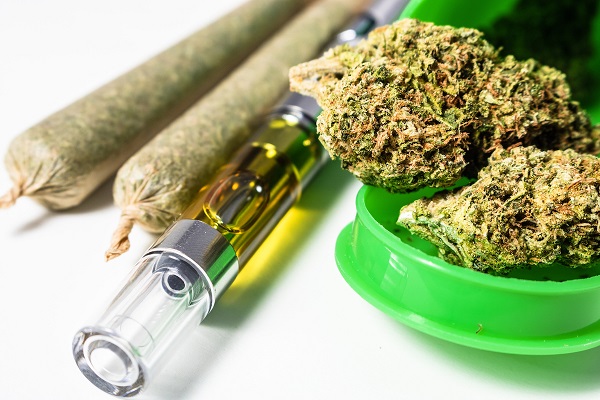
There is no one “best” consumption method for marijuana that works for everyone when it comes to kidney stones or any other medical condition. Different consumption methods can have different effects and may be more or less suitable depending on the individual’s preferences and medical needs.
For example, smoking or vaping marijuana can provide quick relief of symptoms but may not be suitable for people with respiratory issues. Edibles and tinctures may be more suitable for people who prefer not to smoke, but the effects can take longer to onset and can be more difficult to dose accurately.
When using marijuana for medical purposes, it’s important to work closely with a healthcare provider who can help determine the best consumption method and dosage for your individual needs.
Traditional treatments for kidney stones
Treatment for kidney stones depends on the size, location, and composition of the stones, as well as the severity of symptoms.
- Pain management: Pain caused by kidney stones can be managed with over-the-counter pain relievers such as acetaminophen, ibuprofen, or naproxen. In some cases, stronger pain medications or prescription medications may be needed.
- Hydration: Drinking plenty of fluids can help flush out smaller stones from the kidneys and urinary tract. Water is the best choice, but other fluids such as lemonade, orange juice, or cranberry juice can also be beneficial.
- Medications: Medications can be used to help break up stones or to prevent the formation of new stones. For example, alpha-blockers can help relax the muscles in the urinary tract and make it easier for stones to pass.
- Extracorporeal shock wave lithotripsy (ESWL): This is a non-invasive procedure that uses shock waves to break up larger stones into smaller pieces that can be passed more easily. The procedure is performed under sedation or general anesthesia and typically takes about 45 minutes to an hour.
- Ureteroscopy: This is a minimally invasive procedure in which a small camera is inserted into the urethra and guided up to the stone. The stone can then be removed or broken up using a laser. The procedure is performed under general anesthesia and typically takes about an hour.
- Percutaneous nephrolithotomy (PCNL): This is a minimally invasive procedure in which a small incision is made in the back and a tube is inserted to remove the stone. The procedure is performed under general anesthesia and typically takes about an hour.
In some cases, surgical intervention may be needed to remove large or complex stones that cannot be treated with non-invasive methods.
Conclusion
The evidence regarding the relationship between THC use and kidney stones is limited and conflicting. While some studies suggest that THC use may increase the risk of kidney stones, others have found no significant association. More research is needed to fully understand the potential effects of THC on kidney stone formation.
Additionally, while THC may provide pain relief for kidney stone patients, it is not a recommended treatment option due to the potential negative effects of smoking and THC use on overall kidney health. Traditional treatments such as pain management, hydration, and medical interventions like ESWL, ureteroscopy, or PCNL are generally considered safer and more effective treatment options.
Ultimately, individuals should consult with their healthcare providers to determine the best course of treatment for kidney stones and whether THC use may be appropriate in their specific case.
Frequently Asked Questions
Is marijuana good for kidney stones?
There is limited and conflicting evidence regarding the effectiveness of marijuana in treating kidney stones. While THC, a compound found in marijuana, may provide pain relief for kidney stone patients, it is not a recommended treatment option due to the potential negative effects of smoking and THC use on overall kidney health.
What is the effect of marijuana on the kidneys?
The effects of marijuana on the kidneys are not entirely clear, as there is limited research on the topic. However, some studies suggest that marijuana use may have negative effects on kidney function.
Smoking marijuana has been linked to decreased blood flow to the kidneys, which may affect kidney function over time. Additionally, regular marijuana use has been associated with an increased risk of developing chronic kidney disease (CKD) in some studies.
THC, the psychoactive compound found in marijuana, has also been shown to have some potential negative effects on the kidneys. THC may increase blood pressure, which can put extra strain on the kidneys and potentially contribute to kidney damage. THC may also increase the risk of kidney stones, as discussed earlier.
However, it’s important to note that the evidence regarding the effects of marijuana on the kidneys is limited and conflicting. More research is needed to fully understand the potential impact of marijuana use on kidney function and overall health.

